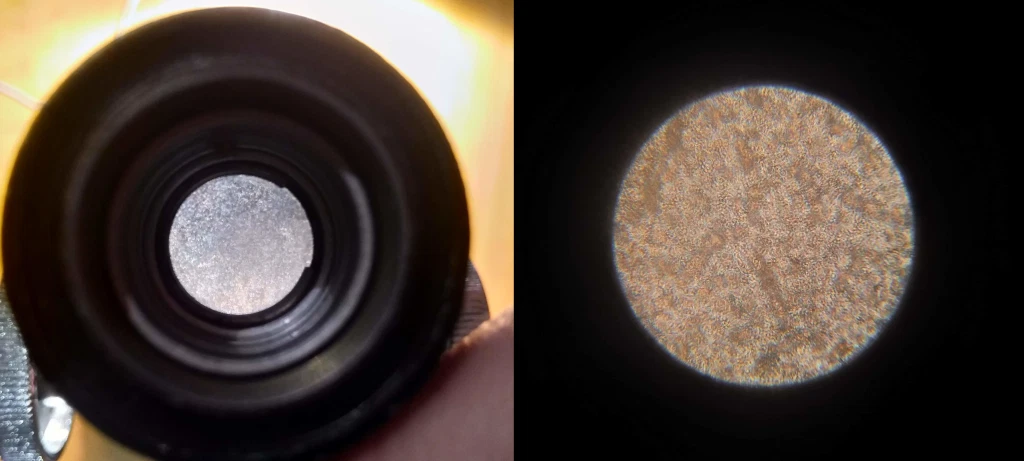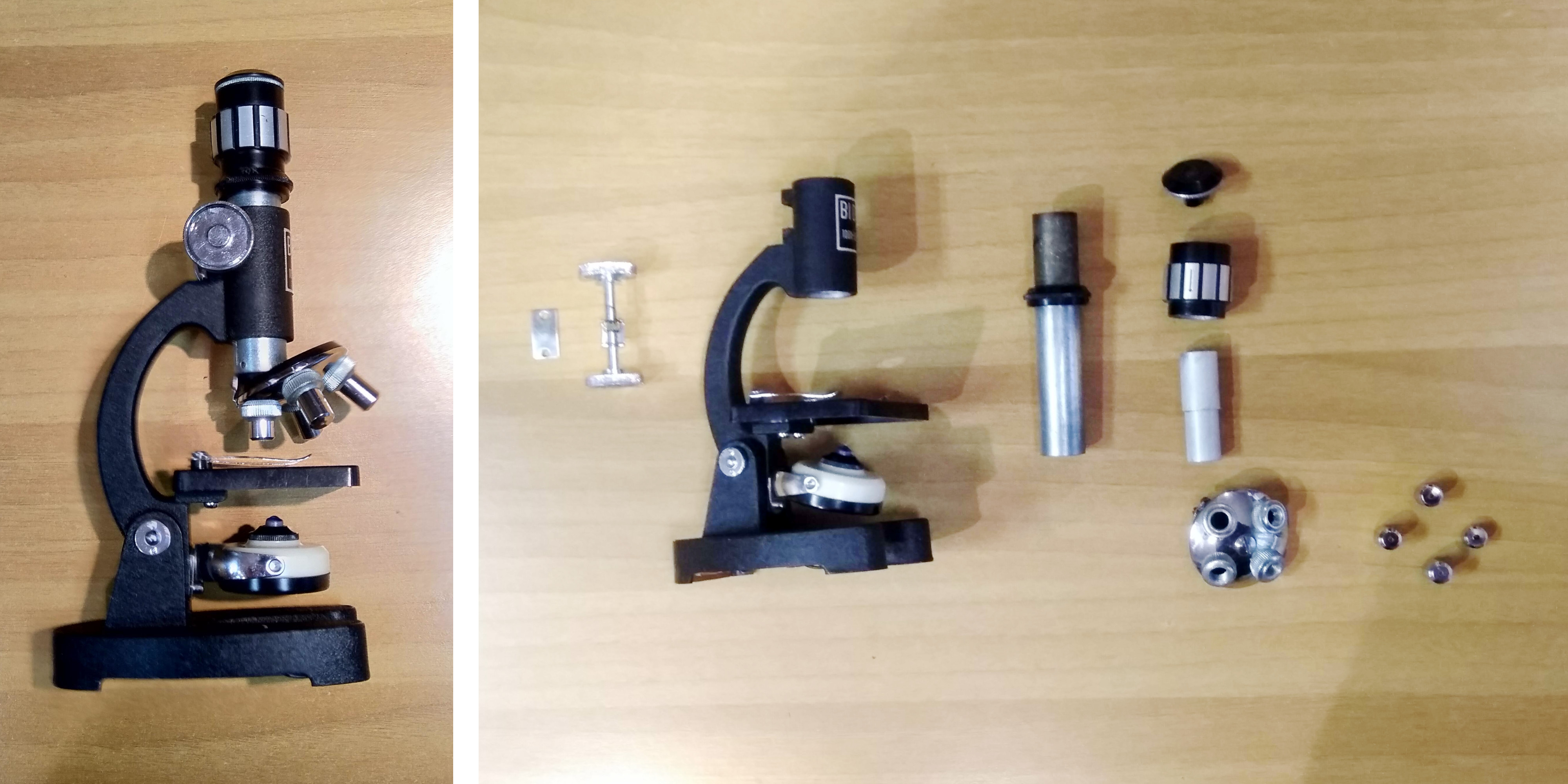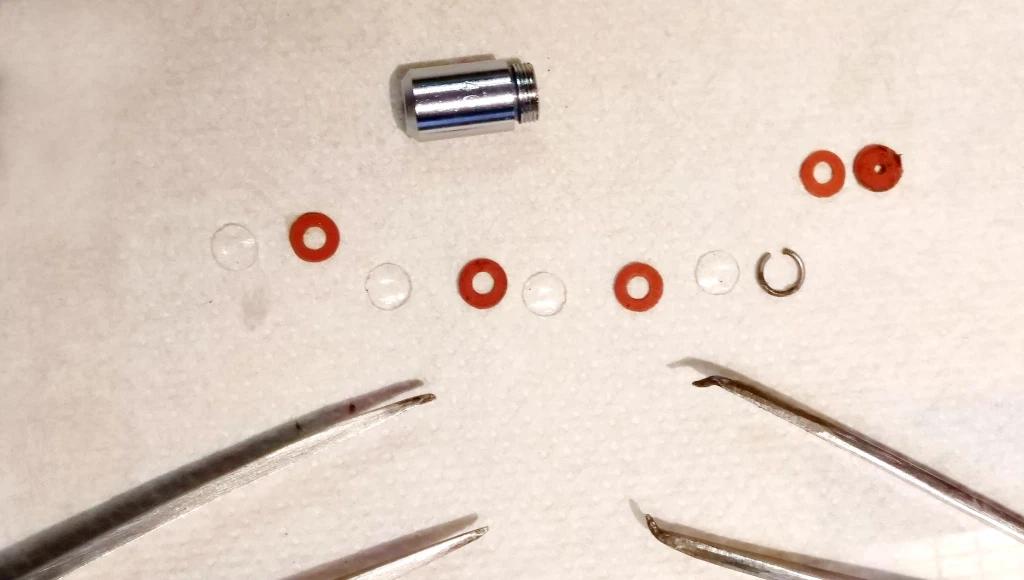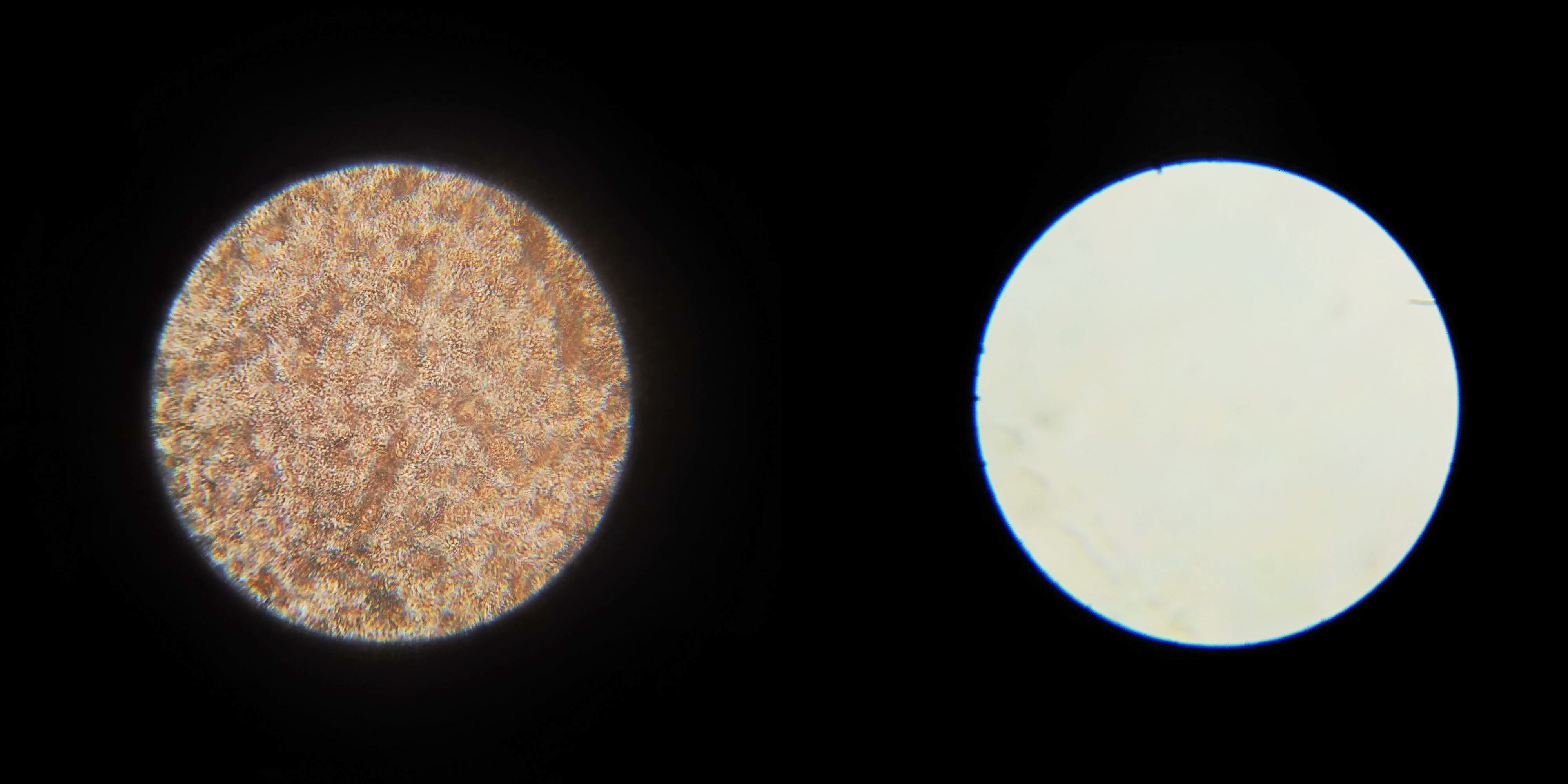Recently, I dug out an old microscope my dad had in his old childhood stuff. As far as he can recall, it probably was a toy from the 80s or so, and it seems to have been quite an expensive one too. I remember playing with it too when I was a child for a couple of times, and I remember the lenses were so dirty that light was barely passing through.
To give a visual context, this is what could be seen from the ocular without anything at all laid on the stage below:

For the picture on the left I removed the ocular to show the dirt inside
Since it seemed like time did its thing on every single piece, I decided to entirely dismantle the microscope and clean each lens and bit with ultrasounds. Apart from cleaning the stains on the lenses, I also degreased those pieces which needed lubrication such as the focus and zoom knobs (they had become quite sticky) and re-greased them.

This first attempt, though, somewhat failed: even though I correctly reassembled every part, I could not put in focus anything. Turns out, the objectives at the bottom were not composed by one single piece as I initially thought, but by several smaller lenses separated by tiny cardboard rings. Fortunately, during the cleansing the water did not ruin the cardboard pieces, but moisture made its way between the lenses and condensed into many stains (or they were already there, who knows). Therefore, I grabbed a pair of tweezers and carefully extracted all those tiny pieces, I cleaned them one by one, and I put them all back together.

At the end of the process, I have to say the result was pretty satisfying, even if not entirely perfect. Here’s a before and after:

Ah, the joy of restoration!
If you are planning to do something similar, let me give out one important advice: always remember (or sketch down) how the lenses you manipulate are positioned. When I couldn’t put anything in focus I had the fear I misplaced a lens and that I’d have to spend hours and hours to find out which one and how. Optics are incredibly complex, and even though I’d be very curious to learn much more about the subject, I only know that lenses can have a correct and wrong side because of their concavity or convexity (a convex side makes light converge, while a concave side makes it diverge, and their combination gives birth to magnification, focusing, and all that follows).
If instead you have already carried out a similar job, any tip is more than welcome!